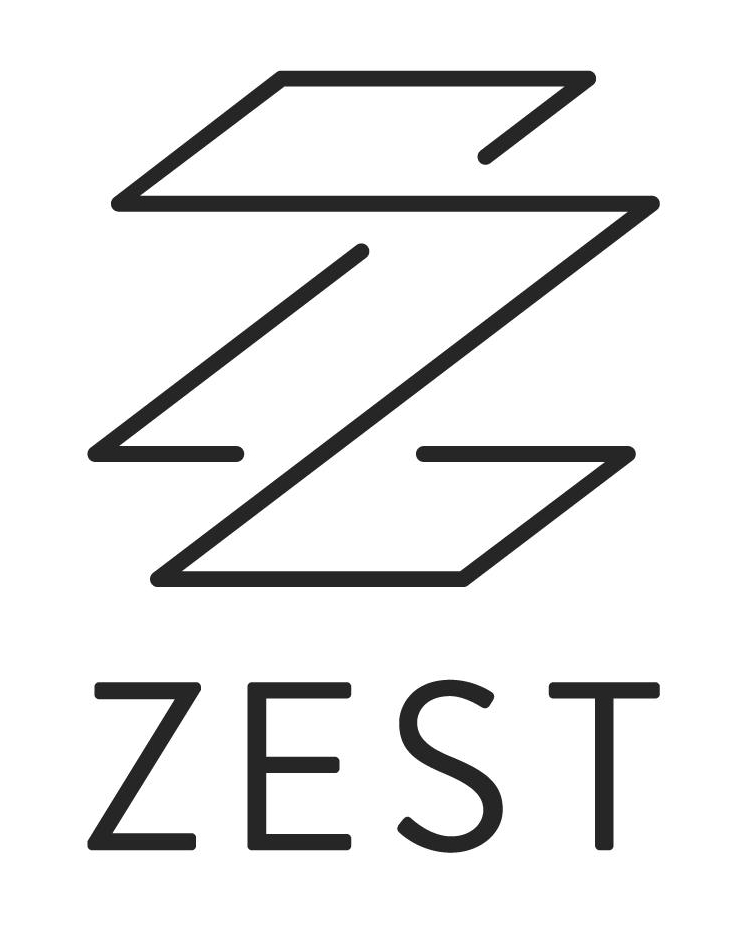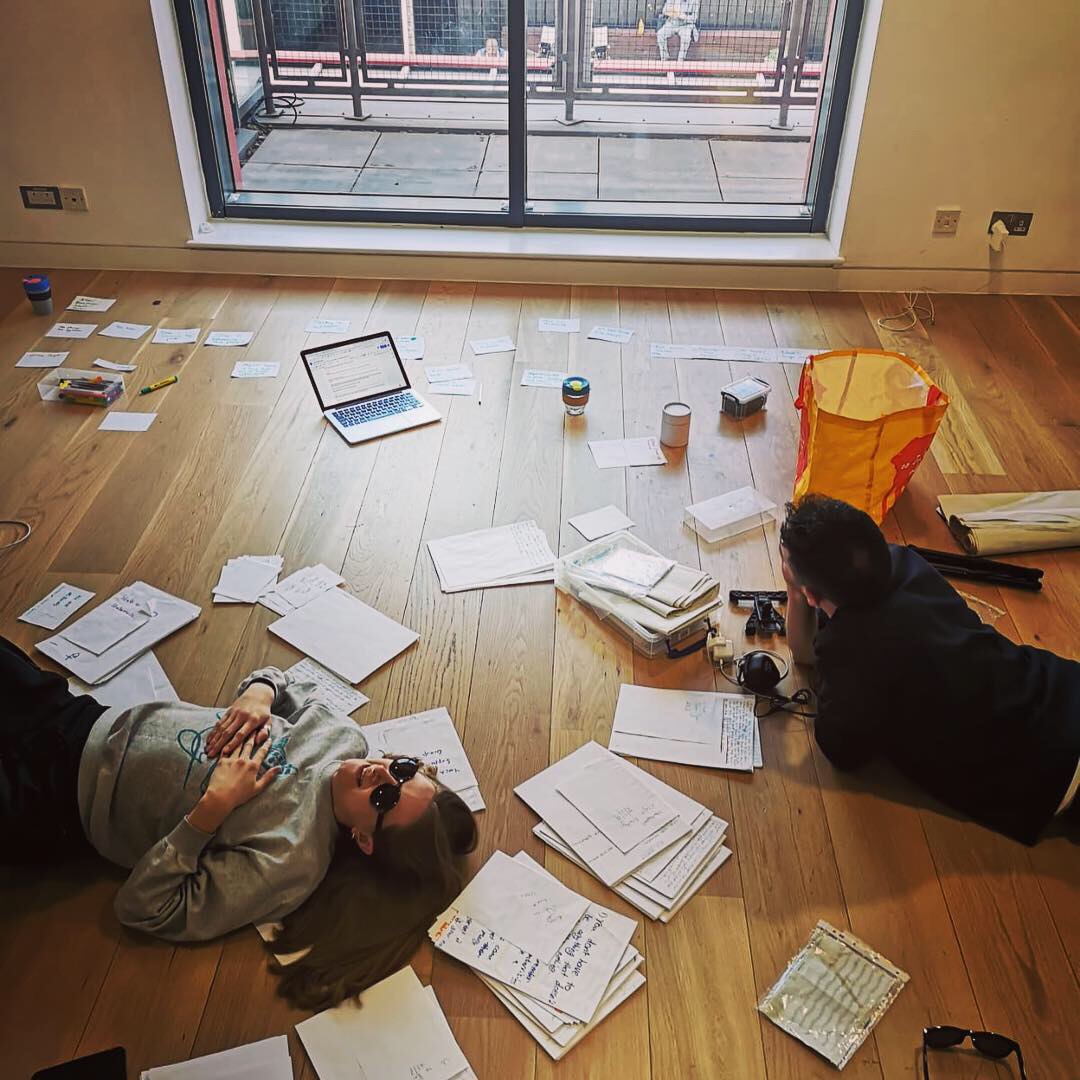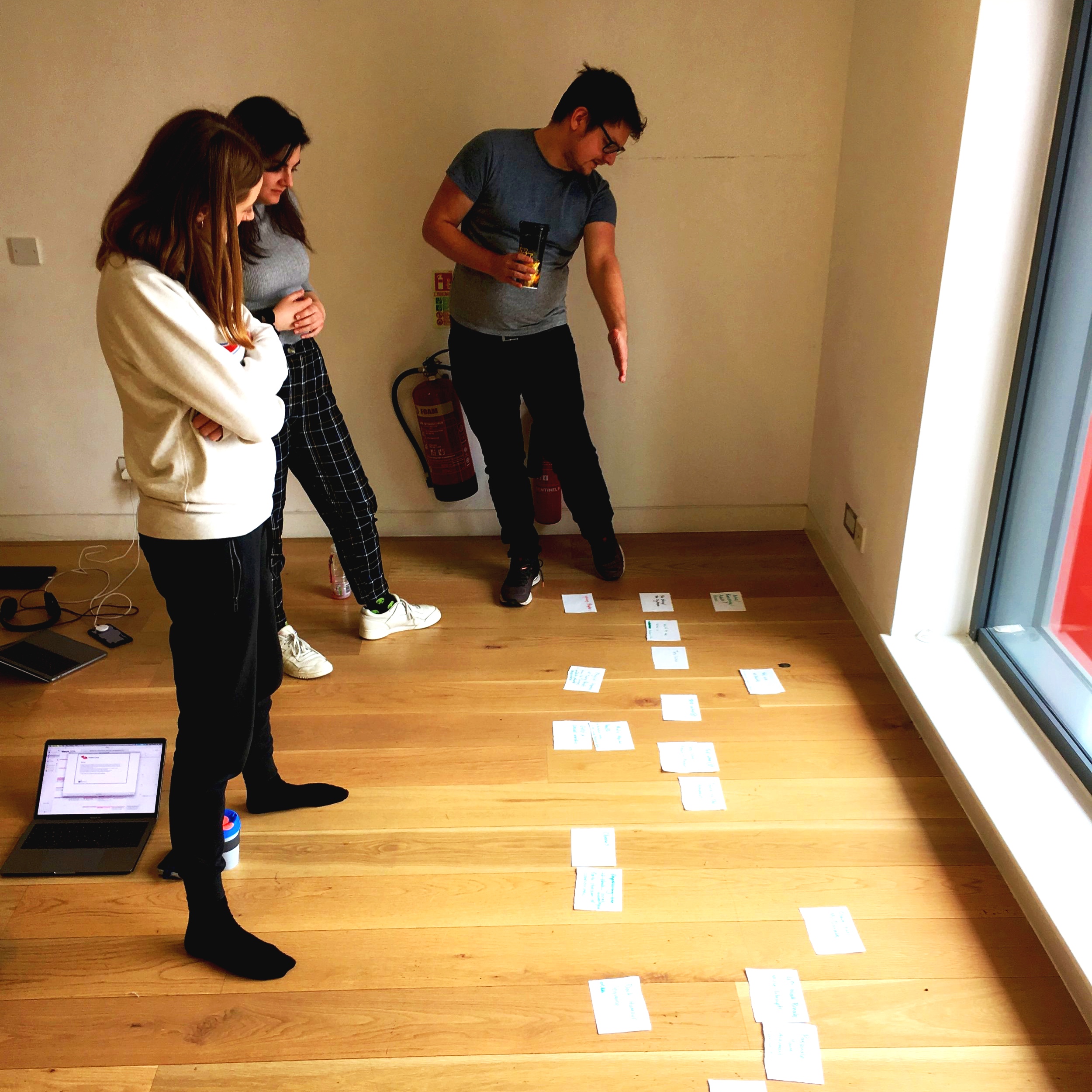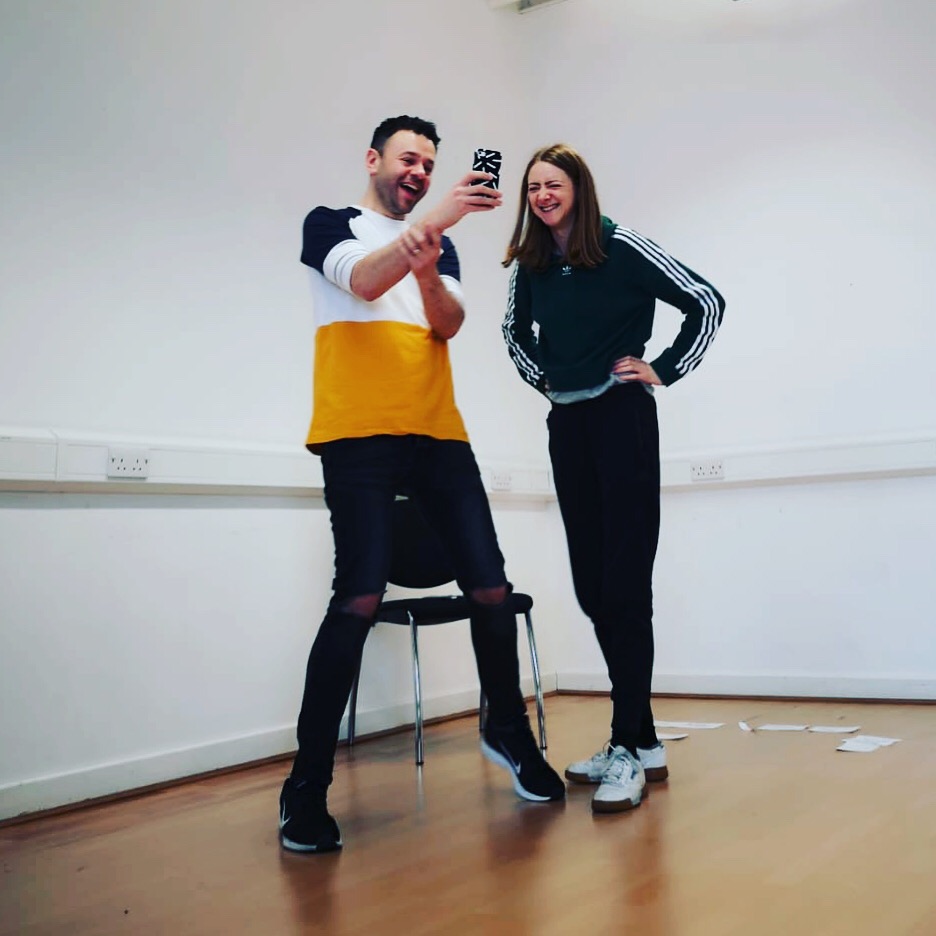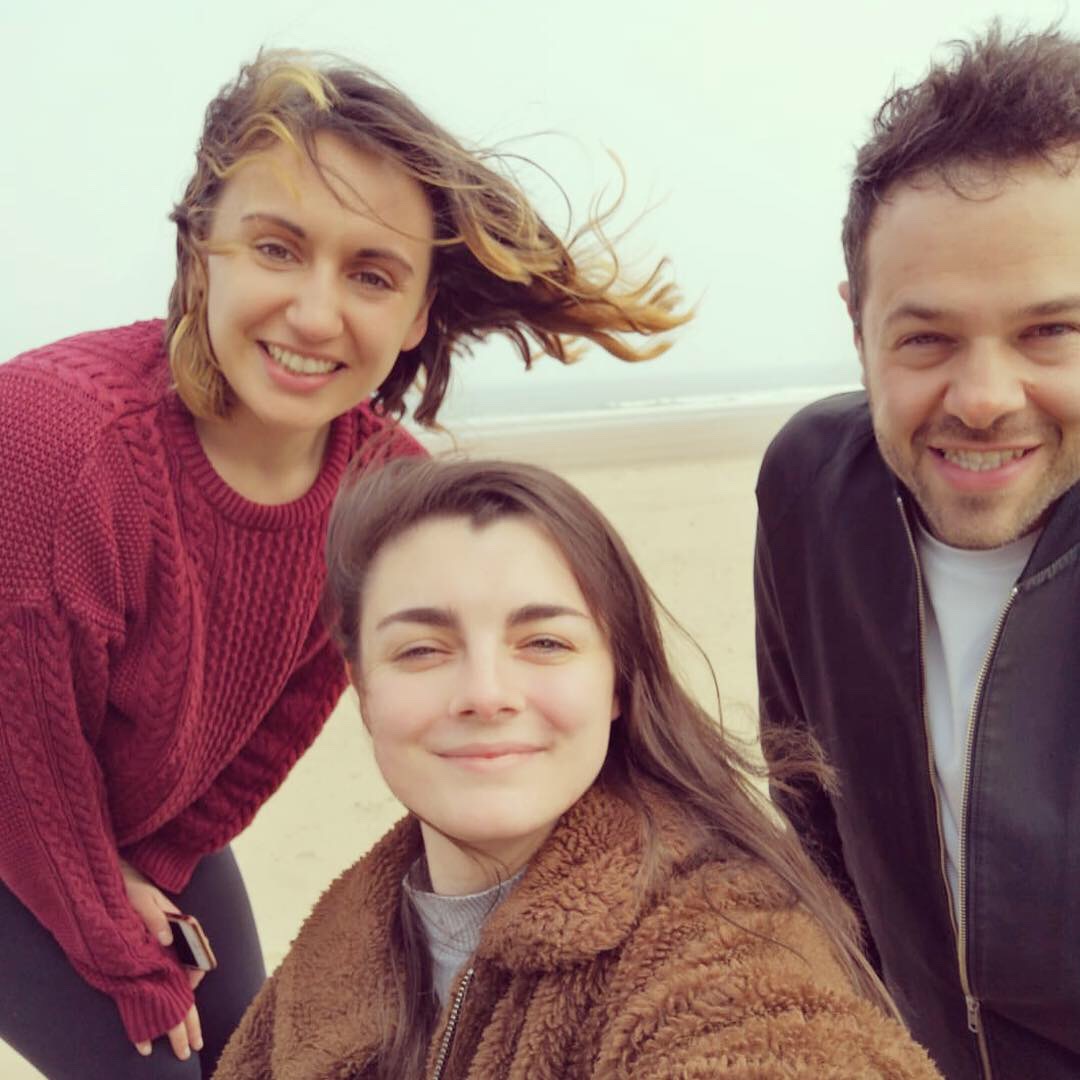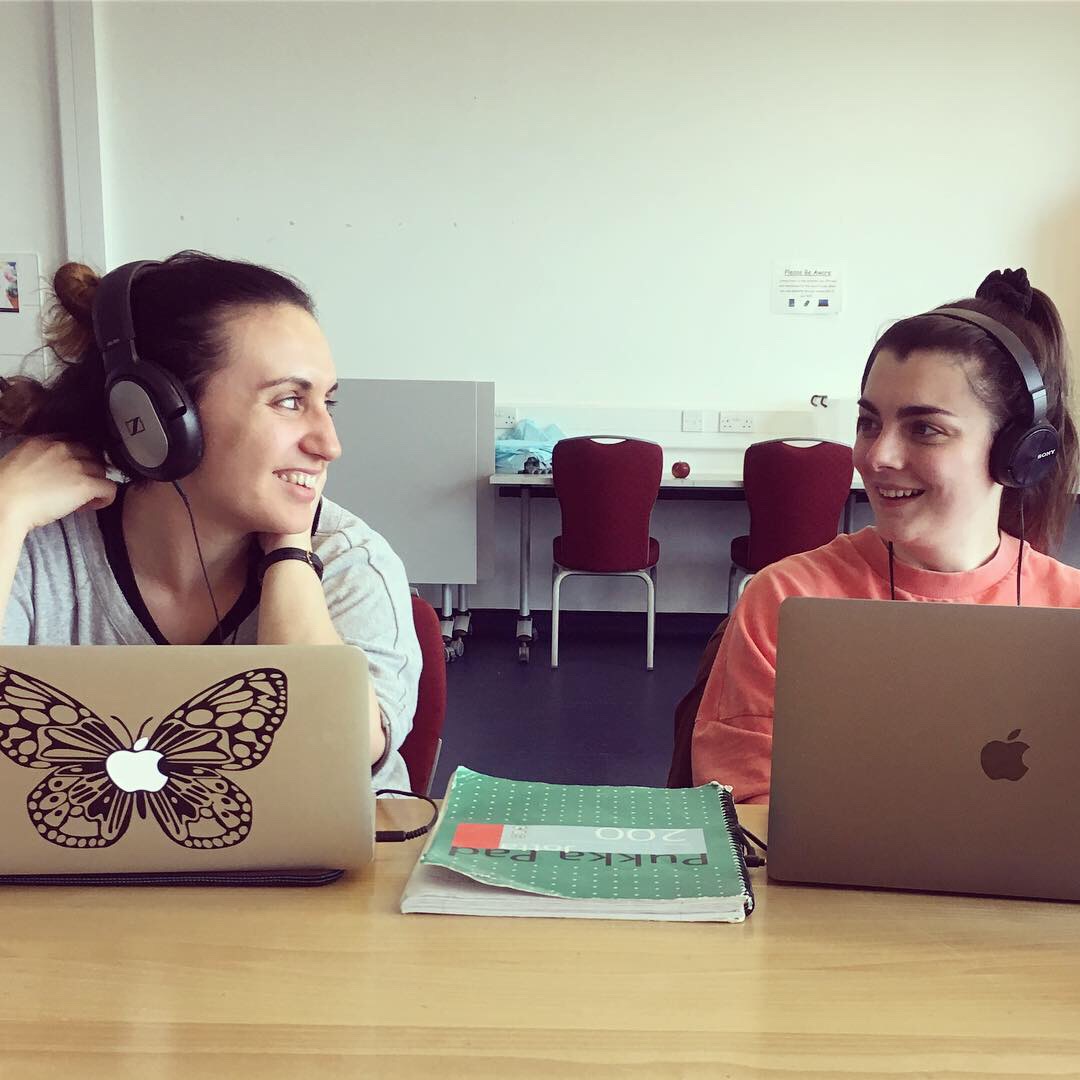5 Tips to Releasing Young Voices
/Bath Theatre AcaDemy at The Egg Theatre
Zest Theatre are currently Researching and Developing a brand new show based on the honest voices, thoughts and opinions of young people across the UK. So how do we do this? How do we genuinely unlock young voices to allow them to talk so openly? Simply, we build trust, encourage open discussion and then shut up and listen.
It’s been 9 weeks since we last blogged about the Research and Development process for our new show, Youthquake. To be honest, I’ve found it hard to even know where to start. Since this development process began in February, we’ve already been to 9 cities (Lincoln, Norwich, Hartlepool, Canterbury, Stratford London, Barnsley, Redcar and Stockton), led 41 workshops and met over 500 young people; all with the aim of lifting the lid on the experiences of Teen Britain. By the end of this development process in June, that total will have risen to 800 young people.
Whilst this creative process has been exciting and inspirational, it’s also been pretty emotionally gruelling (hence the 9 week blog delay). Youthquake will represent the voices of those 800 young people, and therein lies the challenge. Those 800 participants represent 800 lives, with 800 different experiences. As the Director, I really feel the responsibility of caring for all of those stories as we make the show.
One thing is for sure; the young people of the UK are currently dealing with more than they should. In addition to the challenges of puberty, young people are also bombarded on all sides with increasing pressure from Education, Social Media and Family. They’re desperately burdened about issues such as Climate Change, LGBTQ rights and Gender Inequality. In fact, we’ve heard first hand how inequality (in all it’s forms) is crushing too many young people. All this pressure comes together to damage their general mental health and well being.
But there is one thing that does unite the young people of the UK: the feeling that no one is listening, understanding or wanting to do anything to help them. Humans need a sense identity, belonging and meaning in order to thrive. Feeling seen, valued and heard is key to this. It's even more vital when you are in your formative teenage years. However, it often seems like our country fundamentally dislikes young people. The aim of our Research and Development workshops was to simply gather voices to inspire the creation of a new show. But often these workshops have felt much more important, like a much needed service for our young people: a cathartic opportunity to just talk to an adult who will listen without judgement.
It’s not rocket science. In fact, listening to young people is something we have blogged about many times before: like here, and here, and here. But this time we’re going to be really practical. Below are our 5 tips to releasing young voices.
We’ve mainly written these tips for theatre artists who are seeking to run workshops with young people. We’ve therefore assumed that, like us, you are running a workshop with a group of young people you don’t know. We’ve also taken the assumption that you’ve got the respective consent forms and Safeguarding procedures in place.
Whilst these tips are written for theatre makers, we think these tips could be transferable to any situation where you want to authentically listen to young voices, whether that be at a school, community setting, or even at home:
1. Be clear about what you are here for
To start, understand that young people are ‘done to’ for most of their daily lives. Between the boundaries of home and school, they get little choice in the daily experience of life to allow them to shape their day. If you want to really open up genuine dialogue, then don’t be another person that’s ‘doing to’ and place yourself as a person ‘doing with’ or ‘doing for’. How? Well, start your session by clearly explaining who you are and why you are leading the workshop. Tell them what they can expect from your session and the sort of activities you will be doing; this will relieve anyone who is feeling worried about your presence. Explain how that might be beneficial to them and the things they could learn. As arts professionals, we all think our own work and practice is important. But I’d suggest using these first moments to explain what you think the value is in what you are doing, then they can decide for themselves during the workshop if they agree.
2. Unlock the barriers
There are so many barriers to unlocking real engagement from young people. On the whole, self-consciousness will be the primary barrier you will face (see intro to understand why). This can come in many forms, so keep a look out for this and try to break that dynamic. Often, I make myself the most energetic person in the room and wait for that energy to infuse the rest of the room, but that isn’t everyone’s style*. You can help ease a group’s worries through clear communication, gentle encouragement and by accepting participants for who they are as individuals. You should accept participants on their own terms by being flexible in your approach. Have a selection of activities prepared that you can utilise to meet the needs of your group. Be confident in your practise and be ready to change the plan if it isn't working. Had a bad session? Then ask yourself if anything needs to change.
*Be careful with this though, it’s a fine line between being energetic and trying too hard.
3. Artists, chill out
This one is for any Artist leading workshops, but could be applicable to any professional working with young people. Don’t alienate your participants with unnecessary theatrical jargon or pretentious practise. Make them feel at ease and not like they are stupid for not understanding your art form! Most importantly, don’t get tangled up in your own feelings of artistic self importance. You might have a very extensive CV, carry five star reviews for your last show and think you are very important. But listen, the majority of young people you’ll meet won’t have stepped into a theatre any time recently and simply don’t care about you or your practise! It’s your job to encourage them care and provide an empowering artistic experience that might surprise them. Chill out and see things from their point of view (see self consciousness above). Concentrate on making your work accessible, relevant and engaging (and no, those three words don’t mean you need to dumb down or keep it simple).
4. Remove your own filter
This follows on from the previous point. If you want to create genuine, balanced discussion, then you need to provide a safe environment where all voices can be heard, even the ones you don’t agree with. That means actively listening and letting everyone speak. This can be particularly hard when an opinion jars with your preconceptions, doesn’t fit with the narrative you are constructing, or conflicts with your own sensibilities. In these moments it’s your job to find the story. Where does this opinion come from? What experiences have they had? Can they provide examples? Remember that human need for identity, belonging and meaning I mentioned earlier? The root of the most contentious opinions, such as Xenophobia or Racism, usually stem from a perceived sense of threat to one of those key areas. From my experience, you can provide an impacting challenge by discussing identity, belonging and meaning with the individual. You’ll make a more lasting impact by allowing them to hold a mirror up against that point of view and enlighten the individual.
5. Say thank you
This one is simple. Thank your participants for sharing their thoughts. This can be done at the end, but we often say it mid workshop too, especially if someone has shared something particularly personal. At the end of the session highlight that talking and sharing is a good thing. Encourage them to keep talking to each other and the adults in their lives. Close the session by explaining what will happen next, e.g. Zest will now be using your thoughts to create a show that will be touring back to their town later in the year.
The sheer volume, emotional depth and honesty of our participants over the last few months have been overwhelming, and at times pretty difficult to hear. As a generation, our young people are dealing with so much. But despite the emotion, trauma and struggle, I still believe that this generation are nothing short of inspirational.
The world has dealt Generation-Z an unfair hand. But whilst the struggle is very real, they are also beginning to break out the boxes that have previously confined them. They’re resilient, insightful, hilarious, innovative and incredibly smart, even if they don’t realise it yet. Our job is to help them to discover this, in their own words.
